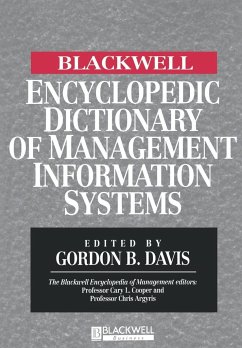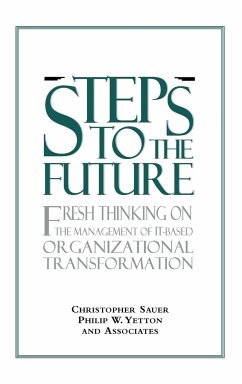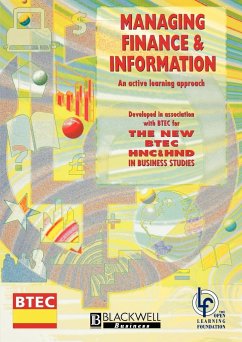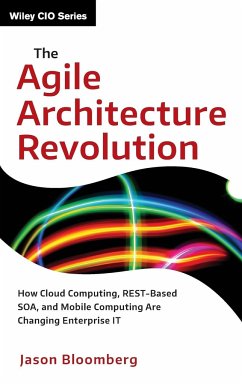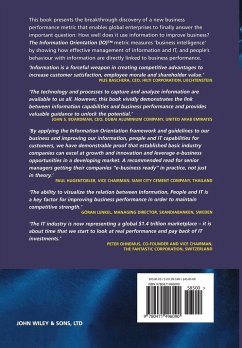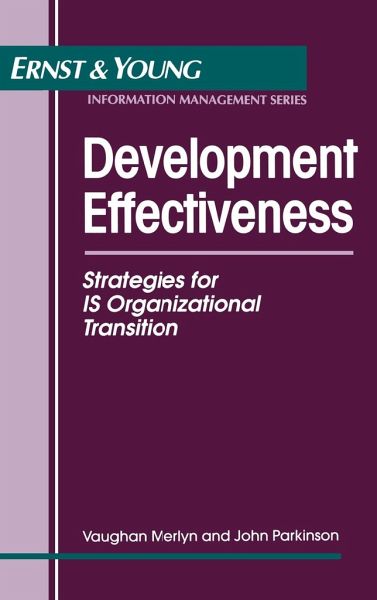
Development Effectiveness
Strategies for Is Organizational Transition
Versandkostenfrei!
Versandfertig in über 4 Wochen
46,99 €
inkl. MwSt.

PAYBACK Punkte
23 °P sammeln!
In an intensely competitive global economy marked by the rapid emergence of new players, products, and services, there's more pressure than ever on information services organizations to provide low-cost, rapidly developed systems to meet the complex, changing needs of their companies. These greater expectations come at a time when the usefulness of current information systems has been severely questioned and the ability of IS organizations to respond more effectively has been hampered by sharp reductions in money and manpower. This latest volume in the groundbreaking Ernst & Young Information ...
In an intensely competitive global economy marked by the rapid emergence of new players, products, and services, there's more pressure than ever on information services organizations to provide low-cost, rapidly developed systems to meet the complex, changing needs of their companies. These greater expectations come at a time when the usefulness of current information systems has been severely questioned and the ability of IS organizations to respond more effectively has been hampered by sharp reductions in money and manpower. This latest volume in the groundbreaking Ernst & Young Information Management Series demonstrates how IS managers and other key personnel can create a more productive IS environment by applying the principles of "development effectiveness" to information technology strategies. Development Effectiveness shows how this new cost-effective approach ultimately wins the support of even the most resistant IS personnel. It allows for a successful transition from the current problematic state of most IS organizations to a desired future state in which IS becomes a full partner in helping users meet today's business challenges. Development Effectiveness first details the problems common to IS environments and it also highlights the leading practices of those organizations that are setting new standards for information systems development performance. Development Effectiveness helps lay the foundation for making IS organizations more productive. The book shows how TQM and business process reengineering can be applied within IS and how TQM and organizational change management principles support an appropriate planning framework. It also discusses the process of designing ahigh-performance IS development organization that gets essential work done while providing enough flexibility to meet changing work needs. The book tackles two of the thorniest obstacles to an effective transition - the strong resistance to change within the organization and the hard task of justifying the costs of the new IS environment. Without blinking, it offers surefire methods designed to overcome barriers to change and management techniques to help sustain change initiatives. Development Effectiveness describes the overall transition framework - preparing for, planning, and managing actual transition projects. It provides an organization with the tools to assess its current position and its readiness and ability to change, as well as a model that incorporates the essential features of an effective and continuously improving development environment. Development Effectiveness doesn't provide any easy answers or "silver bullets". What it does offer today's IS organization is a solid, realistic framework for ensuring that companies are constantly armed with the information they need to prevail in a rapidly changing global environment.





